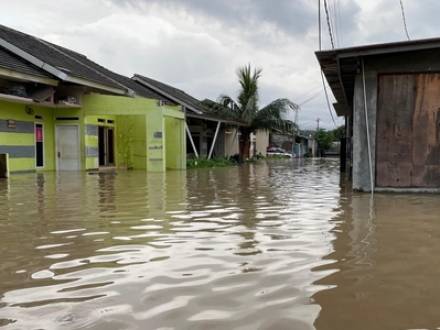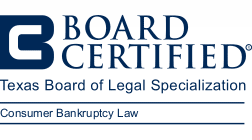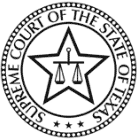Filing Chapter 7 in Texas After Natural Disaster
 Between 1980 and 2024, there were 190 confirmed weather/climate disaster events across the state of Texas, with losses exceeding $1 billion per event. These events included nine floods, 126 severe storm events, 16 tropical cyclone events, seven wildfire events, 12 winter storm events, and 20 droughts.
Between 1980 and 2024, there were 190 confirmed weather/climate disaster events across the state of Texas, with losses exceeding $1 billion per event. These events included nine floods, 126 severe storm events, 16 tropical cyclone events, seven wildfire events, 12 winter storm events, and 20 droughts.
When disaster strikes in Texas, whether it’s a Gulf Coast hurricane, a Hill Country wildfire or flood, or a severe winter storm, many families find themselves buried in debt they never anticipated. Insurance shortfalls, FEMA grant claw-backs, or even contractor disputes can potentially turn recovery into financial ruin.
Texans facing these financial disasters may turn to Chapter 7 bankruptcy when there is simply no realistic path to rebuilding and getting their financial lives back on track. Understanding how disaster-driven Chapter 7 filings work, what debts can and cannot be discharged, and how recent federal and state responses affect struggling Texans can help you make the best financial decision for your future.
If you are facing uninsured property loss, mortgage delinquency following the destruction of your home, business interruption disaster, FEMA repayment demands, or predatory contractor debt, the best step you can take is to speak to an experienced Galveston County, TX Chapter 7 bankruptcy attorney. Your attorney can help you determine whether liquidation and discharge of debts is the most realistic option when rebuilding is not an option.
How Chapter 7 Bankruptcy Fits into Texas Disaster Recovery
Bankruptcy courts in the Southern and Western Districts of Texas have noted spikes in bankruptcy filings following natural disasters. Credit-card and repair-loan debt, along with medical bills and personal guarantees from failed business recovery loans, are all eligible for discharge under Chapter 7. The primary goal of Chapter 7 is to eliminate most unsecured liability debts, which can accumulate rapidly due to uninsured losses, property repairs, and living expenses following a disaster.
Recent tax debts, student loans (except under very limited circumstances), and FEMA grant recapture obligations resulting from fraud are not dischargeable debts. The homestead exemptions in Texas (Section 50, Article XVI) are more generous than those in other states, allowing Texas homeowners to keep or rebuild their primary residences, even in the face of total loss.
In a standard Chapter 7 bankruptcy, a trustee sells the debtor’s non-exempt assets to pay creditors. For those who have already lost significant property following a natural disaster, this could be the best course of action. Filing for Chapter 7 automatically halts most collection actions, which can provide financial breathing room for those living in the aftermath of a natural disaster.
Does Chapter 7 Have Special Provisions for Survivors of a Natural Disaster?
The bankruptcy code and the U.S. Trustee Program have specific guidelines for disaster survivors. Trustees may consider the "adverse impacts of a natural disaster" as special circumstances to help a debtor qualify for Chapter 7, even if his or her income would otherwise be above the state median. Debtors may also be able to bypass certain requirements if a waiver is obtained due to the impact of the natural disaster.
The requirement to attend a meeting of creditors in person can even be waived, allowing for remote attendance for those displaced by a natural disaster. Insurance gap rebuild loans for those who are underinsured are generally dischargeable, and SBA disaster assistance loans are often at least partially dischargeable.
When Can FEMA Reclaim Disaster Relief Assistance?
If the agency later determines that the individual was ineligible, or that the assistance duplicated insurance payouts, the agency may issue a "debt recovery" or grant recapture letter. Some recapture claims are dischargeable, while those treated as government fraud claims may survive Chapter 7.
Contact a Montgomery County, TX Bankruptcy Lawyer
Chapter 7 bankruptcy can offer a legal "reset" for victims of natural disasters. If you have lost your home, business, or savings following a Texas wildfire, hurricane, flood, or other natural disaster, a Galveston County, TX Chapter 7 bankruptcy attorney from The Fealy Law Firm, PC can help. Attorney Fealy is board-certified in consumer bankruptcy and focuses on helping good people through difficult times. Call 713-526-5220 to schedule your free consultation.












